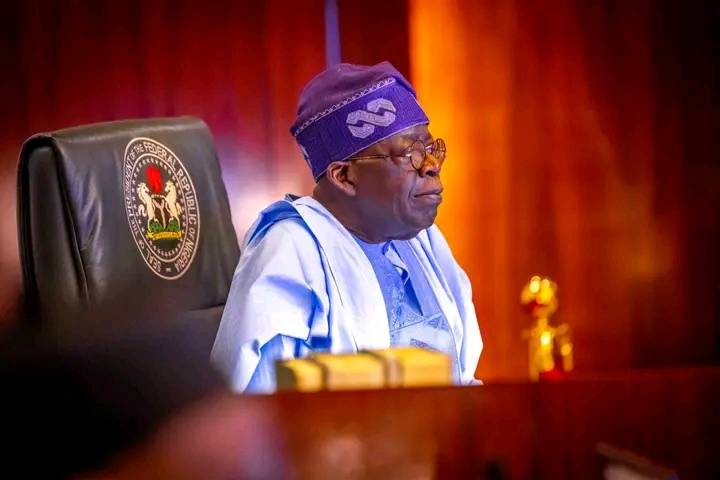ABUJA, Nigeria — President Bola Tinubu on Thursday, May 15, 2025, reaffirmed Nigeria’s commitment to supporting Mali’s transition to democracy and strengthening regional ties, declaring that West African nations are “stronger when united.”
The president made the remarks while receiving the Letter of Credence from Mali’s new Ambassador to Nigeria, Cheick Oumar Coulibaly, at the State House in Abuja.
“We should strengthen our bilateral relations, and it is hoped that Mali will achieve its democratic goals. We are open to any support we can render. I want you to see yourself as a member of the family here,” President Tinubu said.
“For me, we are one in West Africa and Africa. The Alliance of Sahel States (AES) has made its position clear, but no nation can succeed alone. We see Mali as a brother and are ready to collaborate and exchange ideas. I can assure you that Nigeria is home for you. When you feel like seeing us, our doors will always be open.”
Ambassador Coulibaly conveyed the greetings of Malian Head of State, General Assimi Goïta, and expressed appreciation for Nigeria’s continued leadership in West Africa and across the continent.
“The Head of State particularly told me that I was on a mission to the biggest country in Africa. He said he knows it’s not easy, but I should look for solutions as a diplomat. We know that Africans must solve African problems,” Coulibaly said.
“I appreciate you as a leader and father in Africa,” he added, noting Nigeria’s role in regional peace efforts and military contributions to United Nations peacekeeping operations.
President Tinubu also received Letters of Credence from five other ambassadors, representing the Kingdom of the Netherlands, the United Republic of Tanzania, Bosnia and Herzegovina, the Russian Federation, and Switzerland.
He used the occasion to call for deeper global cooperation on peace, economic development, and technological progress.
Welcoming Tanzanian High Commissioner Selestine Gervas Kakele, the president praised President Samia Suluhu Hassan for her leadership at the African Union.
“We will continue to work together. You can see the situation across the world. No one can do it alone. We will continue to collaborate in areas of knowledge and technical know-how,” Tinubu said.
Ambassador Kakele acknowledged Nigeria’s growing economic presence in Tanzania, citing key Nigerian investments by the Dangote Group, UBA, GTB, and Sahara Energy.
He also commended cultural and commercial exchange, particularly between Nollywood and the Tanzanian entertainment industry.
In discussions with Ambassador Andrey Leonidovich Podelyshev of the Russian Federation, President Tinubu spoke of Nigeria’s desire to revitalise its partnership with Russia, especially in steel production, nuclear energy, and education.
“Our partnership has been fulfilling, but we need more technological support with our rapidly growing population. The Ajaokuta Steel Complex, constructed by Russian companies, will only realise its potential when fully operational,” he said.
Ambassador Podelyshev affirmed Russia’s interest in expanding cooperation, highlighting current negotiations on nuclear energy development and academic exchange.
Addressing Ambassador Patrick Egloff of Switzerland, President Tinubu committed to enhancing the business environment through regulatory reforms and legal clarity to attract more investment.
“We will address any legal issues that could impede progress in our economic relations,” Tinubu said.
Ambassador Egloff noted the ongoing expansion of Swiss multinationals like Nestlé and Lafarge across several Nigerian states and praised bilateral cooperation on security and intelligence.
In his audience with non-resident Ambassador Dr Sabit Subasic of Bosnia and Herzegovina, President Tinubu expressed appreciation for the progress in diplomatic ties.
Ambassador Subasic extended an invitation to the Nigerian leader to visit Bosnia and see the developments first-hand.







![Honouring a Rare Soul: Celebrating the Life of AVM Terry Omatsola Okorodudu [MUST READ] Air Vice Marshal Terry Omatsola Okorodudu](https://www.thetrentonline.com/wp-content/uploads/2026/01/Joan-and-Bidemi-Okorodudu-The-Trent-100x70.jpg)